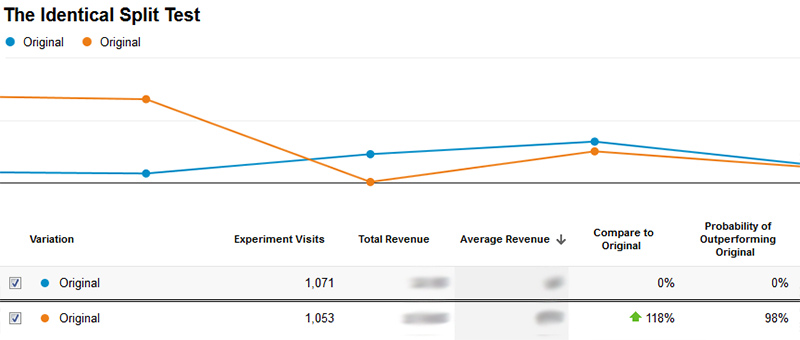Every new task you do will require you to learn something. Even flushing a toilet. Years ago, as a young man, I spent a week in the UK. We were in a bed and breakfast and the toilet had an elevated tank. There was no handle. No chain. There was a little foot peddle that seemed for #1, but when I had to go #2, I was at a loss. There was no way to flush the thing! I carefully made a search for a button, lever, switch, or hidden knob. I found none.
I finally had to ask.
Turns out you had to grab the pipe going from the tank to the bowl and pull down. I never would have expected that. Years after being potty trained, I still had to be shown how to flush the foreign toilet. Granted, part of that problem was a design and signage issue, but it demonstrates how much learning we so often take for granted because we can figure it out so quickly.
As we encounter new things, we have opportunities to learn.
I'm working on learning how to help split test our website. I'd love to make the site better. And the idea of a split test is you can use visitor behavior to determine what is most helpful. But I've had a nagging suspicion that our results aren't as certain as they could be. So I started a new test: I'm currently seeing how a page performs against itself. I'm checking the results of showing different people the exact same page.
Thus far, the outcome is impressive.

A/A Split Test: A is preforming 118% better than A
Naturally, with so little data, I expect a regression toward the mean. Overtime, these two should drift closer together. [But we must not assume they will ever balance each other; such an assumption is based on the gambler's fallacy.] But I think there may be more going on here than is covered in the articles I've read about A/B Testing. It turns out, I learned today, that scientific studies tend to lose their ability to be proven over time.
What?
I'm so shocked, I tell my wife. "Oh, you mean that thing they talked about on RadioLab?" she asks, as if I'd just told her the sky appears blue. Once again, I'm late to the party of knowledge.
The good news is that I'm still learning.
It is natural to learn when we encounter new activities, ideas, or questions. But how do we ensure we keep bumping into new things?
- Read: Books are a great way to expand your world.
- Take a class: Online, at church, or as curriculum, it's easy to build on what others have created.
- Ask questions: I noticed 1 Kings 8:9 for the first time on Sunday and wondered why the Ark didn't have more stuff in it. I still don't know. But the question is pushing me to find an answer! Don't let pride rob you of learning.
- Try something new: Whether it's building a website, knitting a sweater, or baking something tasty, there's plenty out there to stretch you. (I hear Pinterest is a popular source of inspiration, if not discouragement.)
- Travel: I'm not just talking internationally where you'll encounter strange restrooms. When I visit a friend at their church, I often come away with a new appreciation for who God is in light of the difference in that congregation's worship.
How do you like learning new things?
~Luke Holzmann
Filmmaker, Writer, Guardian





Mrs. Laura Lane, re-reading my post, I can totally see that it wasn't particularly clear! Sorry about that. Lack of clarity is one of the problems with writing about something that only recently started to make sense to me [smile]. Thanks for reading and for sharing about your experiences with reading and homeschooling!
~Luke
Hello Mr. Holzmann,
I often read your posts with interest. I was pretty lost in most of your post today, but I agree with your suggestions for learning. Lifelong learning is one of the best benefits of being a reader and being homeschoolers.
Blessings,
Mrs. Laura Lane
Harvest Lane Cottage